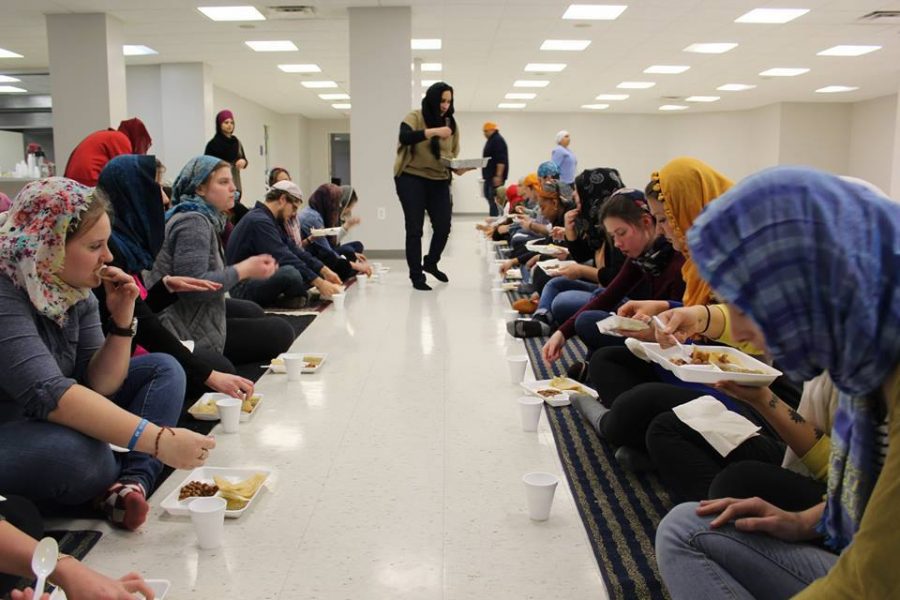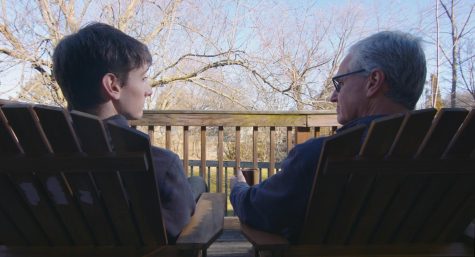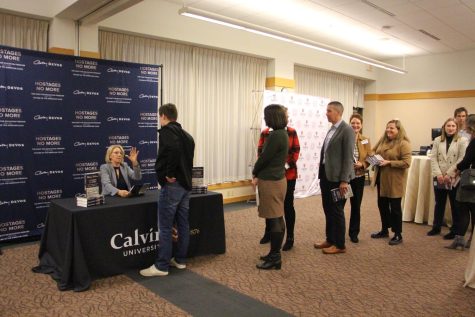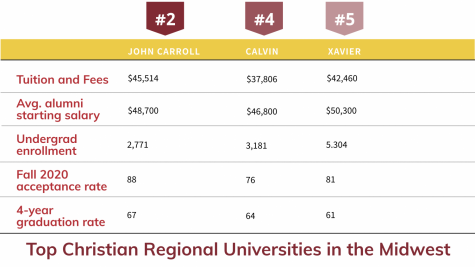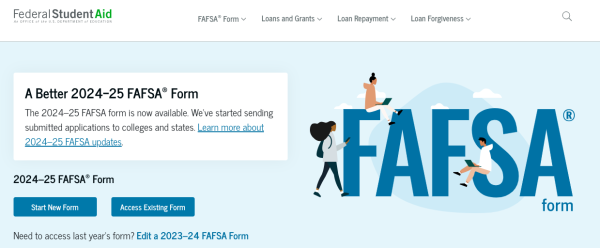Students explore other religious traditions
During the 2017-2018 school year, Calvin students have participated in many interfaith conversations, including discussions between Catholics and Protestants, non-Christian speakers, synagogue visits, and interfaith community dinners.
The interfaith service-learning position was established in 2015 and works with the Kaufman Interfaith Institute of Grand Valley State University. This program strives for education and conversation between religious groups through events and visits.
According to the Fall 2017 Day 10 Report, only 30.6 percent of students on Calvin’s campus are associated with the Christian Reformed Church (CRC), while others vary in denomination and faith background.
Aaron Eastwood, senior and interfaith event attendee, explained his faith transformation since transferring to Calvin:
“I came from the brand of Christianity that was pretty much convinced that every other way of thinking was incorrect,” he said. “But Calvin has actually made me feel comfortable enough to research other ideas. I started reading other religious texts to understand new ways of thinking in different contexts, and no one was ever telling me what to believe. I like that I feel so comfortable exploring other ideas at Calvin.”
Senior Courtney Zonnefeld also attended a few of the events including the Islam and Hospitality event on April 9. Events like these have given her perspective on the culture of hospitality across several religions:
“Hospitality is something that lots of Muslim cultures do really well,” she said. “Many people only see a violent side of Muslim culture, but that’s really only a small portion. I think we need to learn to be guests in other people’s beliefs. That way we can learn what their beliefs actually are.”
There are several classes that present interfaith experiences as well. Professor Richard Plantinga teaches a World Religions course exploring Hinduism, Buddhism, Confucianism, Taoism and Islam. There are also semester-long courses on Judaism, Islam, Hinduism, Buddhism and Confucianism. All of these courses require the prerequisite of a single religion course.
Outside of the religion department, there are classes that involve going off campus to explore other religions where they are practiced. One example of this is Christian and Byzantine Art, taught by professor Luttikhuisen.
“I bring my students to an Orthodox service for a couple of reasons,” he said. “On a narrow level, I think that it is close to impossible to understand Byzantine art without attending a Divine Liturgy.”
Professor Luttikhuisen noted that many of his students had not engaged with other faith or religious communities. To be able to attend an Orthodox service provided students an opportunity to engage with Christians and liturgy in a different way.
Luttikhuisen explained that normally about half of the class attends the service. He also invites art history students in a few other classes to go to an Orthodox service, as well as occasionally taking honors students to a local Islamic center and a Hindu temple. His goal is for students to see it as an enriching experience, instead of from an outsider’s point of view.
“Hospitality is more than a matter of inviting our neighbors on campus,” Said Luttikhuisen. “It includes listening to their ideas and beliefs. In addition, we need to discover ways to be good guests, which demands humility and modesty rather than hubris and pride.”



